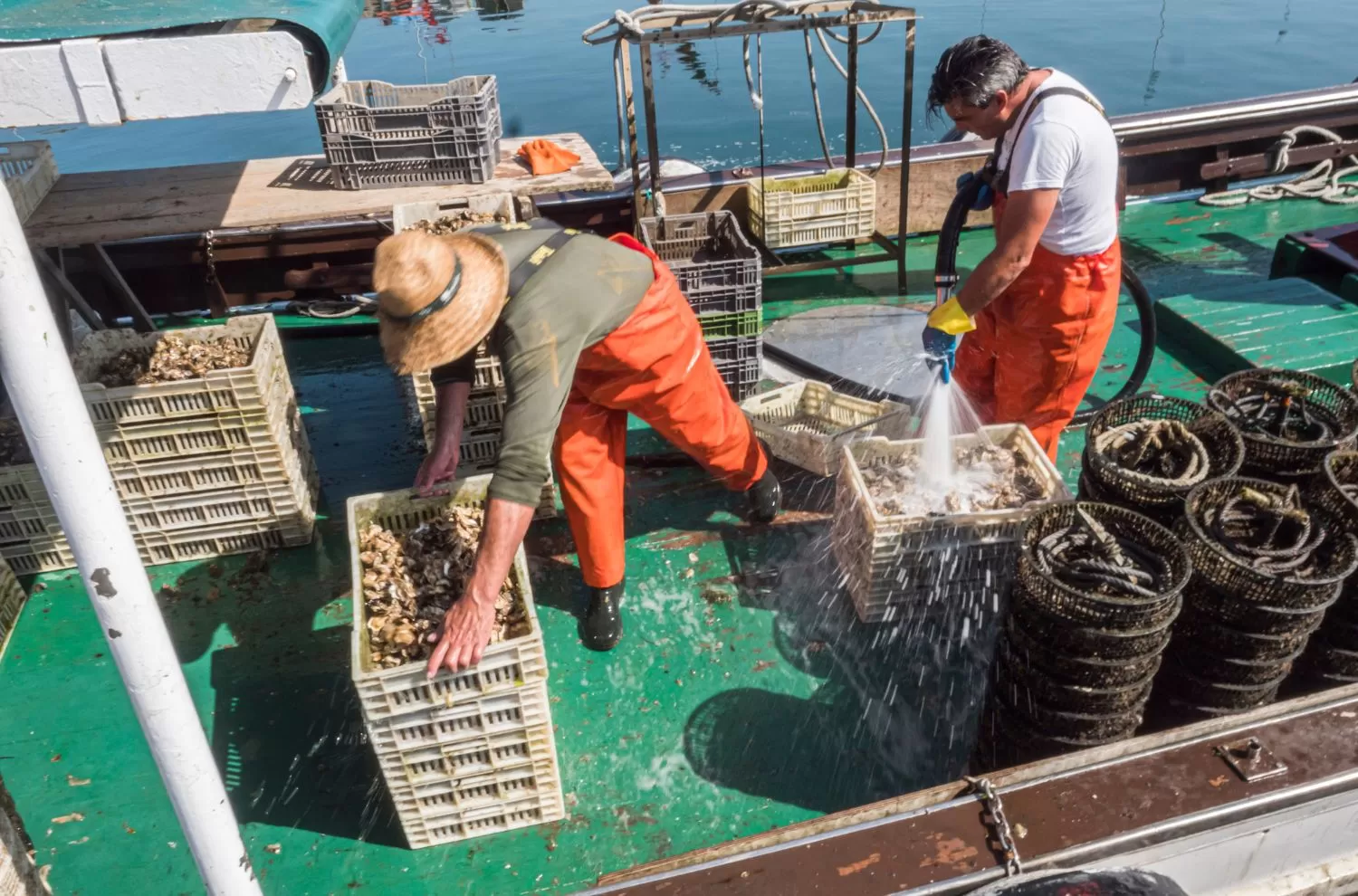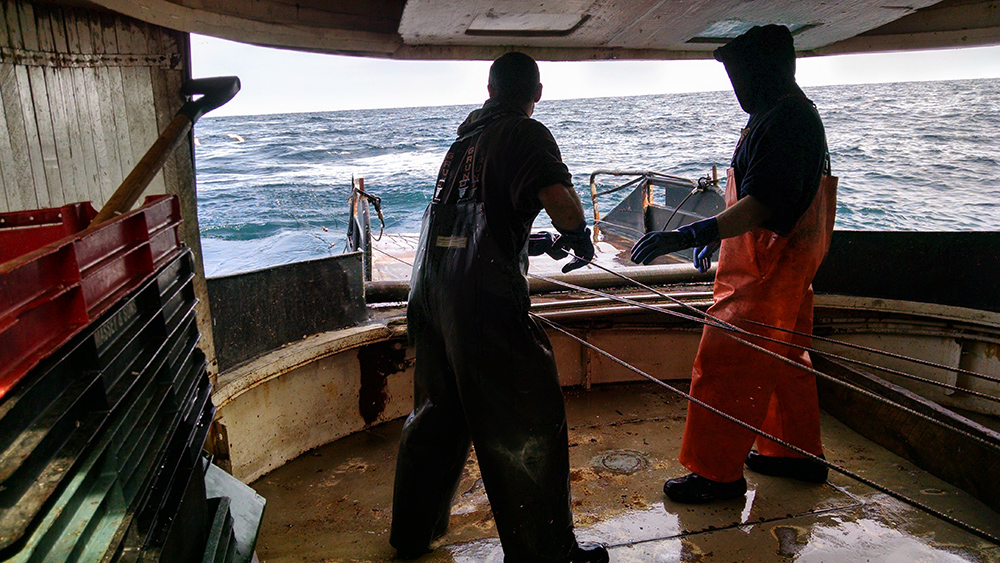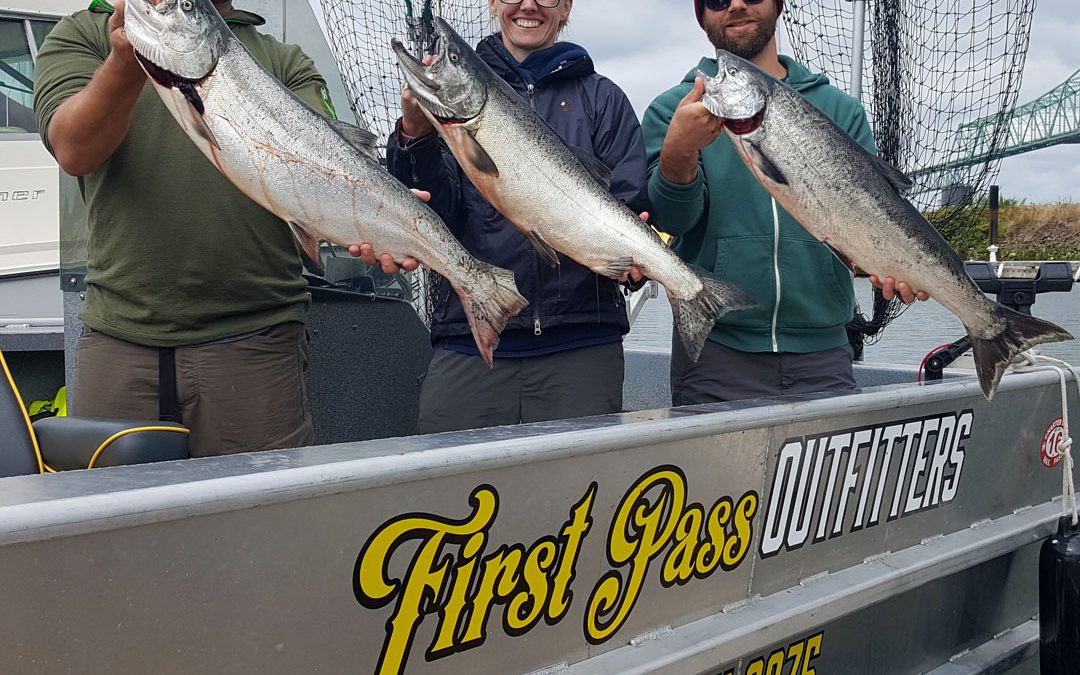How to Get a Job on a Fishing Boat: Step-by-Step Guide to Landing Your First Fishing Crew Position
Landing a job on a fishing boat isn’t just about loving the water—it’s about embracing adventure and hard work every single day. I know the idea of setting out to sea and earning a living under the open sky can sound both thrilling and intimidating. Whether you’re craving a break from the office grind or chasing a new challenge, working on a fishing boat offers a unique way to make a living.
I’ve learned that getting started in this industry takes more than just enthusiasm. It’s about knowing where to look, how to prepare, and what to expect before you even step on deck. If you’re ready to swap your desk for the deck, I’ll walk you through the steps to help you find your first fishing boat job and make the most of this exciting opportunity.
Understanding Fishing Boat Jobs

Understanding-Fishing-Boat-Jobs
Fishing boat jobs rely on teamwork and strong individual effort. I approach them knowing each position demands a unique combination of skills and resilience.
Types of Positions Available
Deckhands handle daily operations, including hauling nets and sorting catch. Engineers maintain engines and other equipment. Cooks prepare meals for the crew. Captains and mates manage navigation and direct fishing activities. Processing crew sort and package seafood on larger vessels.
Skills and Qualifications Required
Physical stamina supports daily tasks like heavy lifting, for example when unloading catch. Basic mechanical knowledge helps with routine equipment maintenance. Teamwork ensures efficient operations when working in close quarters. Valid certifications, such as a Transportation Worker Identification Credential (TWIC), meet industry regulations in the US. Prior experience with boats or manual labor provides a competitive advantage.
Preparing to Apply
Getting ready to apply for a fishing boat job means learning what each role needs and building the right skills. I focus on my qualifications, fitness, and communication skills since these factors help me succeed in the hiring process.
Building Relevant Experience
I gain hands-on experience by starting in entry-level positions such as deckhand, which lets me learn essential tasks like fishing operations, equipment maintenance, and safety. I volunteer, intern, or work in related marine fields to expand my skill set and adapt to life at sea. I complete training in navigation, safety, or fishing gear repairs to add strong credentials, which hiring managers for boats often request. For technical roles, I obtain specific certifications such as the U.S. Coast Guard Merchant Mariner Credential or STCW, keeping my application competitive.
Crafting an Effective Resume
I tailor my resume by focusing on my last ten years of relevant marine or fishing experience, including internships or volunteer work when paid jobs are limited. I use clear, specific examples to show my abilities in equipment handling, safety procedures, and teamwork. I add keywords from fishing boat job listings to pass applicant tracking systems and include a core competencies section for clarity. I proofread for grammar and formatting accuracy and sometimes get a second pair of eyes to review my resume before submitting it. This approach helps me present my experience confidently and increases my chances of getting noticed.
Finding Job Opportunities

Finding-Job-Opportunities
Targeted strategies boost my chances of getting noticed by fishing boat employers. Knowing where to search and who to connect with is essential in this competitive marine field.
Where to Search for Openings
Specialized job boards help me find current fishing boat openings. I monitor the Alaska Job Center Network, local fisheries job centers, and regional seafood job platforms for seasonally updated listings, especially in large fishing regions like Alaska. Online platforms such as ZipRecruiter and Indeed post jobs for deckhands, engineers, and other key positions, listing required skills and certifications directly from hiring companies. Commercial fishing companies, seafood processing plants, and local charter services regularly advertise vacancies on their official websites and community bulletins.
Networking in the Fishing Industry
Strategic networking connects me to job leads and mentors within the fishing community. I build entry-level experience through part-time or seasonal work, which helps develop industry skills and contacts. Professional associations and industry events offer direct introductions to hiring captains and crew. Certification courses, such as those recognized by the U.S. Coast Guard, double as networking opportunities while advancing my credentials. Social media groups and fishing forums let me engage with experienced professionals, stay informed about trends, and respond to recruitment posts from industry insiders and brand ambassadors.
The Application and Hiring Process
Getting a job on a fishing boat means navigating a specific application and hiring process. I make sure to gather the right documents, understand each step, and prepare for a fast-paced screening.
Common Interview Questions
During my interview for a fishing boat job, I answer focused questions about teamwork and conflict resolution. For example, companies ask how I solve disagreements with coworkers or respond to unexpected safety issues at sea. I often describe a time I’ve managed stress or adapted to abrupt schedule changes. My answers show clear communication and readiness for the unpredictable demands of fishing. If I’m applying for a specialized role, I share examples of marine or equipment experience, highlighting technical skills or quick thinking in emergencies.
What to Expect During the Hiring Process
The hiring process for a fishing boat job requires careful paperwork and screening. I submit a detailed application with ID, proof of work eligibility, and a U.S. address. I usually include relevant references, even if no resume or cover letter is required. The company contacts me for health questionnaires, a drug test, and a background check. I speak and understand English fluently, as most roles need clear communication. The team checks my physical fitness since working conditions are harsh—long hours, heavy labor, and cramped quarters are common. I show flexibility with job assignments and state my preferences but stay open to any entry-level placement that matches the vessel’s needs. Pay, hours, and living conditions always vary by company and season.
Tips for Success on the Job

Tips-for-Success-on-the-Job
Securing a fishing boat job is only the starting point. Staying productive and thriving at sea means mastering both daily routines and emergency procedures.
Adapting to Life at Sea
Adjusting to life aboard a fishing vessel means adapting quickly to unpredictable hours and demanding work. I prepare for shifts that often last more than 12 hours and use early downtime to build endurance by helping with net repairs, gear maintenance, or cleaning. I keep my personal space organized and compact since shared cabins and workspaces leave little room for clutter. I build camaraderie through direct communication with crew members, understanding that clear interactions help keep operations smooth despite the isolation. I learn the layout of my boat, identify emergency exits, and practice using survival gear until the motions become automatic.
Safety and Compliance Guidelines
Meeting legal and safety expectations protects my job status and my life. I regularly inspect my personal flotation device and check its fit and condition before daily work begins. I attend safety drills, review the use of immersion suits, and memorize firefighting routines as required by the U.S. Coast Guard. I never skip compliance steps and keep my credentials, like my Merchant Mariner Credential, accessible at all times. I follow instructions on safety equipment and participate in on-the-job training sessions offered on my own vessel for hands-on experience with our actual gear and procedures. I treat every drill as preparation for the real emergencies most fishing boats eventually face, using these experiences to build muscle memory and confidence.
Conclusion
Landing a job on a fishing boat is a bold step that can lead to incredible personal and professional growth. I know it takes more than determination—it demands adaptability and a true willingness to learn every day on the water.
If you’re ready to embrace the challenges and rewards of life at sea, you’ll find that the effort pays off in unique experiences and lasting connections. I encourage you to keep an open mind, stay persistent, and let your passion for this adventurous career guide you forward.
Frequently Asked Questions
What qualifications do I need to work on a fishing boat?
Most fishing boat jobs require physical stamina, basic mechanical skills, and strong teamwork abilities. Common certifications include the Transportation Worker Identification Credential (TWIC) and, for some roles, the U.S. Coast Guard Merchant Mariner Credential. Prior experience with boats or manual labor is a plus.
What types of jobs are available on a fishing boat?
Fishing boat jobs include deckhands, engineers, cooks, captains, and processing crew. Each role demands different skills, but all require adaptability, resilience, and a willingness to work hard in challenging conditions.
How do I get experience for fishing boat jobs?
Gaining experience through entry-level positions, volunteering, or internships in marine-related fields can help. Hands-on experience with fishing operations, safety procedures, and equipment maintenance is valuable for prospective crew members.
How do I make my fishing boat job application stand out?
Focus your resume on relevant marine or manual labor experience. Use clear examples, include industry keywords from job listings, keep your formatting professional, and thoroughly proofread to ensure clarity and accuracy.
Where can I find job openings for fishing boats?
Specialized job boards like the Alaska Job Center Network and regional seafood job sites are excellent resources. Networking with industry professionals, joining social media groups, and attending industry events can also help uncover job leads.
What is the hiring process like for fishing boat jobs?
Applicants typically submit an application, undergo interviews focused on teamwork and conflict resolution, and complete health checks, drug tests, and background checks. Being physically fit and flexible about job assignments can improve your chances.
What is life like working on a fishing boat?
Life at sea can be demanding, with unpredictable hours, shared living quarters, and physical labor. Strong communication, personal organization, and building good relationships with the crew are key to success and well-being on board.
How can I stay safe while working on a fishing boat?
Follow all safety guidelines, regularly check your personal flotation device, participate in safety drills, and keep credentials accessible. Adhering to these standards is crucial for your safety and continued employment on a fishing vessel.
What should I expect in terms of pay and working conditions?
Pay, hours, and living conditions vary greatly by company, season, and job type. Entry-level roles might require flexibility regarding shifts and assignments, and living conditions are often communal. Research potential employers for specific details.
